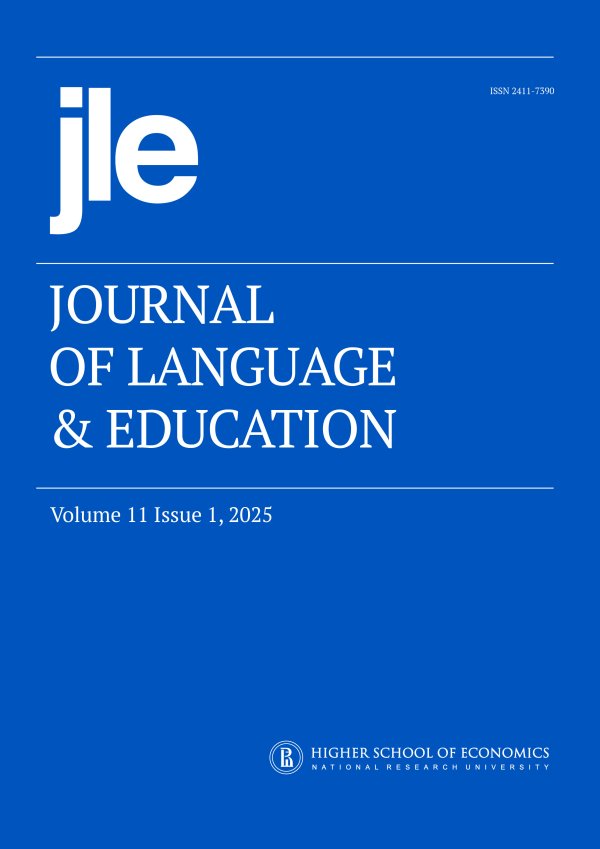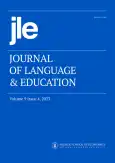Fiction vs. Reality: How Students Discover Real-Life Representations in Prose Using Engaged Reading
- Авторы: S. .1, Prihatini A.1
-
Учреждения:
- University of Muhammadiyah Malang, East Java, Indonesia
- Выпуск: Том 9, № 4 (2023)
- Страницы: 85-98
- Раздел: Оригинальное исследование
- URL: https://journal-vniispk.ru/2411-7390/article/view/302294
- DOI: https://doi.org/10.17323/jle.2023.13287
- ID: 302294
Цитировать
Полный текст
Аннотация
Background: The reading of fiction texts requires intense effort to integrate mind, emotion, and intrinsic reading motivation, in order to discover real-life representations. There is limited research in this area.
Purpose: This study employs the engaged reading strategy combined with discovery learning, in order to investigate improvements in students’ competence in prose appreciation.
Method: This study used a mixed-method design. Thirty-two Indonesian Language Education students participated in the study. Data was collected using student worksheets, observation, and semi-structured interviews. Data analysis was conducted by identifying and interpreting the results of prose appreciation for each reading activity.
Results: This study found that while explaining the theme and through description students were able to activate prior knowledge. The students' reading motivation mainly focused on the intrinsic element of stories. They clearly understood the plot, characterizations, and messages, but supporting details varied because of the differences in students’ knowledge, experience, and social background related to short stories. In the post-reading stage, students revealed new knowledge and mental imagery. Based on our findings, engaged reading combined with discovery learning can enrich students' experience and ability to elaborate information, as well as to discover new knowledge about real-life representation in prose.
Conclusion: Based on the research findings, teachers and lecturers are able to utilize the engaged reading strategy combined with discovery learning to promote students’ ability to read literature. Further research should involve more diverse participants. Experimental research could also examine the advantages and disadvantages of engaged reading and discovery learning.
Ключевые слова
Об авторах
. S.
University of Muhammadiyah Malang, East Java, Indonesia
Автор, ответственный за переписку.
Email: sugiarti@umm.ac.id
A. Prihatini
University of Muhammadiyah Malang, East Java, Indonesia
Email: artiprihatini@umm.ac.id
Список литературы
- Beauchemin, F. (2019). Reconceptualizing classroom life as relational-key. In R. Beach & D. Bloome (Eds.), Languaging relations for transforming the literacy and language arts Classroom (pp. 23-49). Routledge.
- Beasley, C. (2012). Gender & Sexuality: Critical Theories, Critical Thinkers. Sage.
- Becker, A. L. (1991). Language and languaging. Language and Communication, 11(1), 33-35. DOI: https://doi.org/10.1016/0271-5309(91)90013-L
- Bloome, D., & Beach, R. (2019).Introduction: Languaging relations for transforming the teaching of literacy and language arts. In R. Beach & D. Bloome (Eds.), Languaging relations for transforming the literacy and language arts Classroom (pp. 1-20). Routledge.
- Brickell, C. (2006). The sociological construction of gender and sexuality. The Sociological Review, 54(1), 87-113. DOI: https://doi.org/10.1111/j.1467-954X.2006.00603.x
- Cushman, P. (2008). What principals want in a male role model. Set, 2008(1), 30-34. DOI: https://doi.org/10.18296/set.0487
- Cushman, P. (2010). Male primary school teachers: Helping or hindering a move to gender equity? Teaching and Teacher Education, 26(5), 1211-1218. DOI: https://doi.org/10.1016/j.tate.2010.01.002
- Denzin, N. K. (1989).Interpretive biography. Sage.
- Dewey, J. (1938). Experience and education. Macmillan.
- Dhunpath, R. (2000). Life history methodology: ‘narradigm' regained.International Journal of Qualitative Studies in Education 13(5), 543-551. DOI: https://doi.org/10.1080/09518390050156459
- Griffiths, M. (2006). The feminization of teaching and the practice of teaching: Threat or opportunity? Educational Theory, 56(4), 387-405. DOI: https://doi.org/10.1111/j.1741-5446.2006.00234.x
- Goffman, E. (1977). The arrangement between the sexes. Theory and Society, 4(3), 301-331. https://www.jstor.org/stable/656722.
- Hobbs, L., & Davis, R. (2013). Narrative pedagogies in science, mathematics and technology. Research in Science Education, 43(3), 1289-1305. DOI: https://doi.org/10.1007/s11165-012-9302-5
- Jørgensen, J. N. (2004). Languaging and Languagers. In J. N. Jørgensen (Ed.), Languaging and language practices (pp. 5-23). University of Copenhagen.
- Lortie, D. C. (1975). Schoolteacher: A sociological study. University of Chicago Press.
- Loughran, J. J. (2007). Learning through self-study: The influence of purpose, participants and context. In J. J. Loughran, M. L. Hamilton, V. K. LaBoskey, & T.Russell (Eds.), International handbook of self-study of teaching and teacher education practices (pp. 151-192). Springer.
- Lyons, N., & Freidus, H. (2007). The reflective portfolio in self-study: Inquiring into and representing a knowledge of practice. In J. J. Loughran, M. L. Hamilton, V. K. LaBoskey, & T.Russell (Eds.), International handbook of self-study of teaching and teacher education practices (pp. 1073-1108). Springer.
- McDowell, J., & Klattenberg, R. (2019). Does gender matter? A cross-national investigation of primary class-room discipline. Gender and Education, 31(8), 947-965. DOI: https://doi.org/10.1080/09540253.2018.1458078
- McGrath, K., & Sinclair, M. (2013). More male primary-school teachers? Social benefits for boys and girls. Gender and Education, 25(5), 531-547. DOI: https://doi.org/10.1080/09540253.2013.796342
- Mills, M., Haase, M., & Charlton, E. (2008). Being the ‘right' kind of male teacher: the disciplining of John. Pedagogy, Culture & Society, 16(1), 71-84. DOI: https://doi.org/10.1080/14681360701877792
- Norris, S. P., Guilbert, S. M., Smith, M. L., Hakimelahi, S., & Phillips., L. M. (2005). A theoretical framework for narrative explanation in science. Science Education, 89(4), 535-563. DOI: https://doi.org/10.1002/sce.20063
- Sexton, S. S. (2015). The feminisation of teacher education. Language. Individual & Society, 9, 173-182.
- Sexton, S. S. (2020). Meaningful learning: David P. Ausubel. In B. Akpan & T. J. Kennedy (Eds.), Science education in theory and practice: An introductory guide to learning theory. (pp. 163-175). Cham, Switzerland: Springer. DOI: https://doi.org/10.1007/978-3-030-43620-9_12
- Taylor, S. (2010). Narratives of identity and place. Routledge.
Дополнительные файлы











